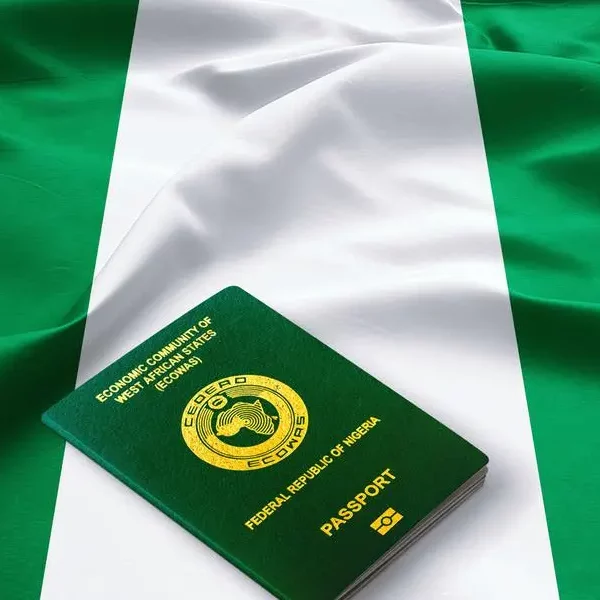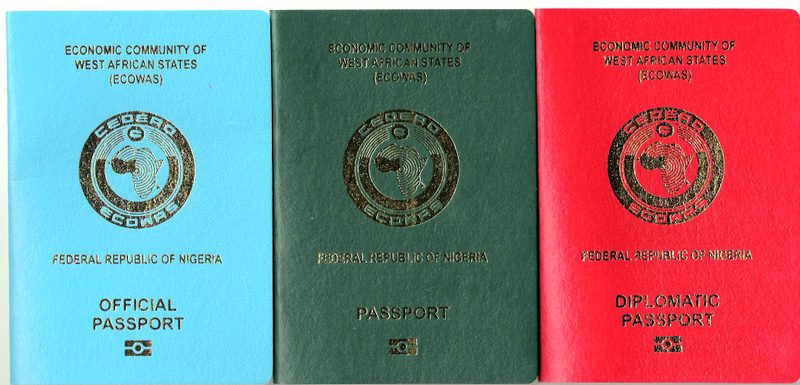
The Nigerian passport is an important travel document that enables citizens of Nigeria to travel outside of the country for various reasons such as business, education, tourism, and other purposes. In this article, we will discuss the history of the Nigerian passport, its types, requirements for obtaining one, and its significance.
History of the Nigerian Passport:
The Nigerian passport has a rich history that dates back to the pre-independence era. Prior to independence in 1960, Nigerians traveled with British passports. It wasn’t until after independence that Nigerians were issued their own passports.
The first Nigerian passport was issued on October 1, 1963, three years after independence. It was a green-covered passport and had the coat of arms and national emblem of Nigeria on the cover. The passport had only 32 pages and was valid for two years.
In 1988, a new passport was introduced, which was burgundy in color and had 48 pages. It also had the coat of arms and national emblem of Nigeria on the cover, but with additional security features such as a biometric data page, digital photographs, and other security features to prevent fraudulent activities.
In 2007, the Nigerian government introduced a new passport with further enhanced security features to address issues of passport fraud and forgery. The new passport was issued in three categories: 32 pages for frequent travelers, 64 pages for business people, and five-year validity for adults. The passport also has a new design with more sophisticated security features such as a chip, watermarks, holograms, and other features.
Types of Nigerian Passport:

There are three types of Nigerian passport:
Standard e-Passport
Official e-Passport
Diplomatic e-Passport
The standard e-Passport is issued to ordinary Nigerian citizens for private and business purposes. The official e-Passport is issued to government officials and the diplomatic e-Passport is issued to Nigerian diplomats.
The Nigerian Passport Application Process:
To apply for a Nigerian passport, there are certain requirements that applicants must meet. These requirements include:
Completed Passport Application Form
Two Recent Passport Photographs
Payment of the Appropriate Fee
Birth Certificate or Declaration of Age
National Identification Number (NIN)
Proof of Address
Marriage Certificate (For Married Women)
Police Report (For Lost Passport)
To apply for a passport, applicants must first complete the online passport application form on the Nigerian Immigration Service website (www.immigration.gov.ng). After completing the form, applicants must print out the completed form and take it to the nearest passport office for processing.
Applicants must also provide two recent passport photographs, which must be taken against a white background. The photographs must be 2×2 inches in size and must be signed by a guarantor.
Applicants must also pay the appropriate fee for the passport application. The fee varies depending on the type of passport and the number of pages required.
Applicants must provide their birth certificate or declaration of age, which must be accompanied by a sworn affidavit. Applicants must also provide their National Identification Number (NIN) as proof of identity.
Applicants must provide proof of address, which can be in the form of a utility bill, bank statement, or any other document that shows their address. Married women must also provide their marriage certificate as proof of their name change.
In the case of a lost passport, applicants must provide a police report as evidence of the lost passport.
Significance of the Nigerian Passport:
The Nigerian passport is an important travel document that provides Nigerian citizens with the freedom to travel outside the country for various reasons such as business, education, and tourism. It is also an important form of identification that is recognized internationally.
The Nigerian passport also allows Nigerians to enjoy visa-free or visa-on-arrival access to several countries around the world. For instance, Nigerians with a valid passport can travel to countries such as Barbados, Benin Republic, Cameroon, Cape Verde, Dominica, Ghana, Haiti, Indonesia, Kenya, Mauritius, Seychelles, and several others without needing a visa or can obtain a visa on arrival.
The Nigerian passport also serves as a form of identification within the country. It is required when opening a bank account, applying for a driver’s license, and other official purposes.
In recent years, the Nigerian government has introduced several reforms to enhance the security of the passport and prevent fraud and forgery. The introduction of the biometric data page, digital photographs, and other security features have made the passport more secure and less susceptible to fraudulent activities.
However, obtaining a Nigerian passport can still be a tedious and time-consuming process. Long queues, delays, and other bureaucratic hurdles have been a major source of frustration for many Nigerians seeking to obtain or renew their passports. The Nigerian Immigration Service has introduced several measures to address these issues, such as the introduction of the online passport application system and the issuance of express passports for urgent travel purposes.
In conclusion, the Nigerian passport is an important travel document that allows Nigerian citizens to travel outside the country for various purposes. It is an important form of identification and provides visa-free or visa-on-arrival access to several countries around the world. While the process of obtaining a Nigerian passport can be challenging, the Nigerian government has introduced several measures to make the process easier and more efficient. With continued reforms and improvements, the Nigerian passport will continue to play a significant role in facilitating international travel and strengthening Nigeria’s global presence

